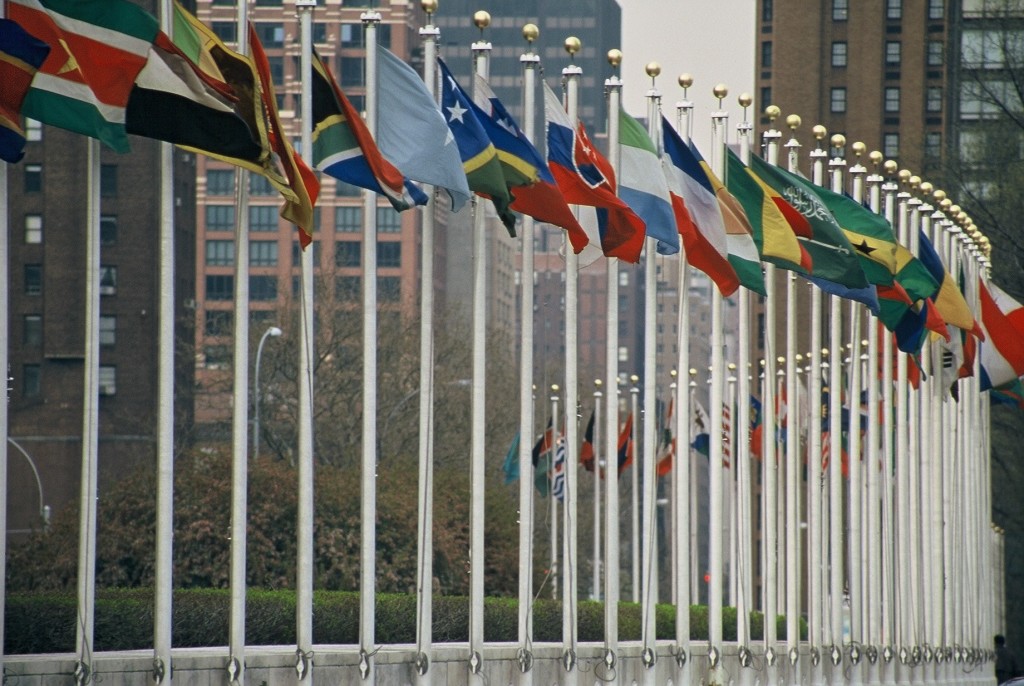The Sustainable Development Goals (SDGs)
Ambitious international targets for sustainability

From September 25-27, the UN is hosting the high-level Sustainable Development Summit and, assuming all goes according to plan, adopting the Sustainable Development Goals (SDGs). The result of years of negotiation with dedicated efforts at transparency and inclusion, the SDGs are a big deal in the international development community. They represent ambitious, consensus international targets seeking to shift the world toward a more sustainable trajectory.
The roots of the SDGs can be traced back to the Stockholm Conference in 1972 and its connection of environment and development as linked concerns of the international community. The proposal of specific goals arose at the Earth Summit in 1992 and its adoption of Agenda 21. Agenda 21’s forty chapters and eight hundred pages offered a mix of aspirational goals and a how-to guide for policy implementation across an audacious breadth of topics – from desertification and the empowerment of women to overconsumption and marine conservation. The Commission on Sustainable Development was created within the UN General Assembly to ensure and monitor implementation Agenda 21, a task Dan Esty memorably compared to being told to “follow up on the Bible.” In a bizarre twist, Agenda 21 was soon seized on by Glenn Beck and property rights groups as a “world plan for socialist domination.”
In 2000, the UN General Assembly adopted the Millennium Development Goals (MDGs). The MDGs set out eight broad goals, such as “Eradicate Extreme Poverty and Hunger” and “Improve Maternal Health.” Each was then supported by specific targets. The 7th MDG, “Ensure Environmental Sustainability,” focused on environmental concerns and set out four targets. In an important shift away from the aspirational and guidance features of Agenda 21, many of the MDG targets were empirically measurable. Target 7-C, for example, called for halving by 2015 the proportion of the population without sustainable access to safe drinking water and basic sanitation. Progress was carefully tracked by region and shown on a user-friendly chart. While the UN claims the MDGs were “the most successful anti-poverty movement in history,” others have criticized the monitoring of the MDGs as overstating progress. Few, though, can doubt that the MDGs effectively focused international discourse and helped target specific development initiatives.
In some respects, the SDGs continue the trend toward more concrete and measurable outcomes. With an endpoint of 2030, the SDGs present 17 goals, assessed through 169 targets that, in turn, are informed by 304 indicators. They present an interesting perspective on how the field has changed since 2000. While in 2000, none of the MDGs was specifically dedicated to climate or energy, the SDG highlights two distinct goals – Climate Action (SDG 13) and Affordable and Clean Energy (SDG 7). A similarly novel feature of the SDG is its interconnectedness. Ecological health is featured explicitly in over half of the goals.
To be sure, as with all UN endeavors, the SDGs have their critics. The sheer number of targets and goals creates the risk of a haphazard laundry list. Thus an editorial in The Economist decried that “the efforts of the SDG drafting committees are so sprawling and misconceived that the entire enterprise is being set up to fail.” Nor do the SDGs attempt to address trade-offs – how can we ensure the goals of food security in some regions (SDG 2) without risking the drawdown of water supplies (SDG6)?
Nonetheless, armchair criticism of complex negotiations is easy. Reaching international consensus on goals, targets and indicators (many of which are measurable) across the range of human activity is no small achievement. If the SDGs can help provide a common framework for meaningful discussion of sustainable development, as well as common metrics to assess progress, that will be well worth the effort.
Reader Comments
One Reply to “The Sustainable Development Goals (SDGs)”
Comments are closed.






Dear Madam/Sir
I am PhD candidate (energy and environmental law). Thanks for posting the useful scientific literature by email. I have a request, can i send my literature or opinions on environmental law to legal planet?